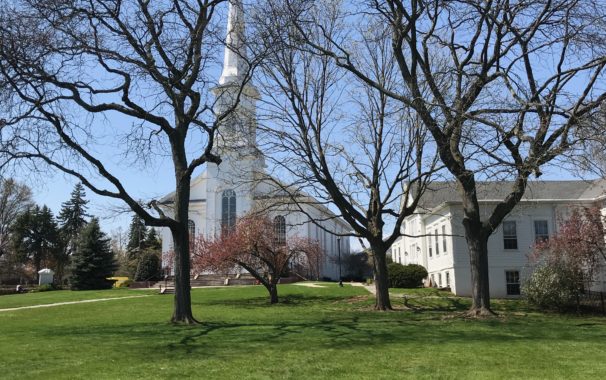
A U.S. district court held that a claim by Medicaid applicants against New Jersey officials for wrongly denying their applications is barred by the Eleventh Amendment because it would require the state to pay retroactive benefits. Radogna v. Connolly (U.S. Dist. Ct., D. N.J., No. 1:16-cv-5477 (NLH/KMW), Aug. 24, 2018).
Dominic Rodogna and Solomon Krupka both filed applications for Medicaid coverage of long-term care in New Jersey. The state notified Mr. Rodogna and Mr. Krupka’s law firm, requesting additional verifications and documents. The law firm requested additional time, but the state did not respond. The state then denied the applications for failure to provide the requested documentation in a timely manner.
Mr. Rodogna and Mr. Krupka sued the state Medicaid officials in federal court, alleging that the state violated federal Medicaid law by not granting a reasonable extension and allowing a fair opportunity to present documentation, among other things. The officials filed a motion to dismiss, arguing that they were immune from the lawsuit because Mr. Rodogna and Mr. Krupka were seeking retroactive benefits, in violation of the Eleventh Amendment.
The U.S. District Court, District of New Jersey, granted defendants’ motion to dismiss, holding that the state officials are immune under the Eleventh Amendment. According to the court, because “the ‘prospective relief’ of mandating the reprocessing of the Medicaid applications would presumably require payment of entirely retroactive payments,” Mr. Rodogna’s and Mr. Krupka’s claims are barred by the Eleventh Amendment.
The case is attached here – Radogna v. Connolly
(This blog post is adapted from an article on the ElderLawAnswers.com website. Mr. Vanarelli is a founding member of ElderLawAnswers.)
For additional information concerning probate litigation and will contests, visit:
Categories
- Affordable Care Act
- Alzheimer's Disease
- Arbitration
- Attorney Ethics
- Attorneys Fees
- Beneficiary Designations
- Blog Roundup and Highlights
- Blogs and Blogging
- Care Facilities
- Caregivers
- Cemetery
- Collaborative Family Law
- Conservatorships
- Consumer Fraud
- Contempt
- Contracts
- Defamation
- Developmental Disabilities
- Discovery
- Discrimination Laws
- Doctrine of Probable Intent
- Domestic Violence
- Elder Abuse
- Elder Law
- Elective Share
- End-of-Life Decisions
- Estate Administration
- Estate Litigation
- Estate Planning
- Events
- Family Law
- Fiduciary
- Financial Exploitation of the Elderly
- Funeral
- Future of the Legal Profession
- Geriatric Care Managers
- Governmental or Public Benefit Programs
- Guardianship
- Health Issues
- Housing for the Elderly and Disabled
- In Remembrance
- Insolvent Estates
- Institutional Liens
- Insurance
- Interesting New Cases
- Intestacy
- Law Firm News
- Law Firm Videos
- Law Practice Management / Development
- Lawyers and Lawyering
- Legal Capacity or Competancy
- Legal Malpractice
- Legal Rights of the Disabled
- Liens
- Litigation
- Mediation
- Medicaid Appeals
- Medicaid Applications
- Medicaid Planning
- Annuities
- Care Contracts
- Divorce
- Estate Recovery
- Family Part Non-Dissolution Support Orders
- Gifts
- Life Estates
- Loan repayments
- MMMNA
- Promissory Notes
- Qualified Income Trusts
- Spousal Refusal
- Transfers For Reasons Other Than To Qualify For Medicaid
- Transfers to "Caregiver" Child(ren)
- Transfers to Disabled Adult Children
- Trusts
- Undue Hardship Provision
- Multiple-Party Deposit Account Act
- New Cases
- New Laws
- News Briefs
- Newsletters
- Non-Probate Assets
- Nursing Facility Litigation
- Personal Achievements and Awards
- Personal Injury Lawsuits
- Probate
- Punitive Damages
- Reconsideration
- Retirement Benefits
- Reverse Mortgages
- Section 8 Housing
- Settlement of Litigation
- Social Media
- Special Education
- Special Needs Planning
- Surrogate Decision-Making
- Taxation
- Technology
- Texting
- Top Ten
- Trials
- Trustees
- Uncategorized
- Veterans Benefits
- Web Sites and the Internet
- Webinar
- Writing Intended To Be A Will







Vanarelli & Li, LLC on Social Media